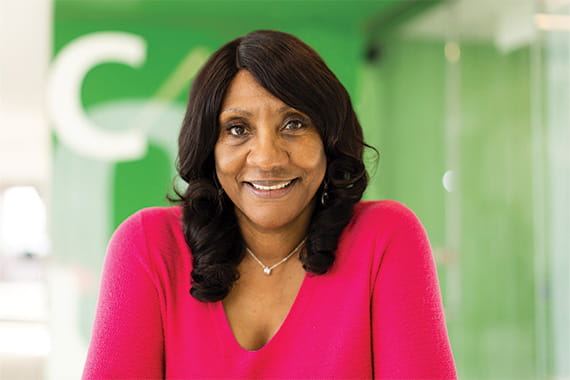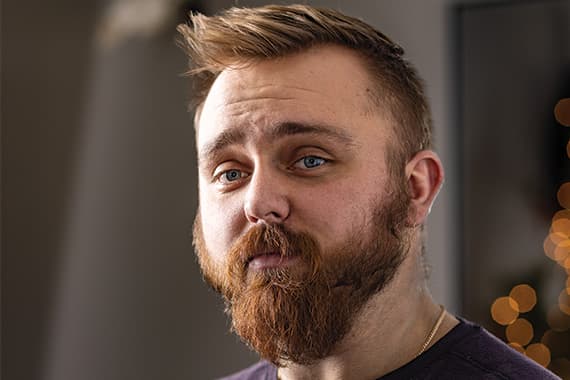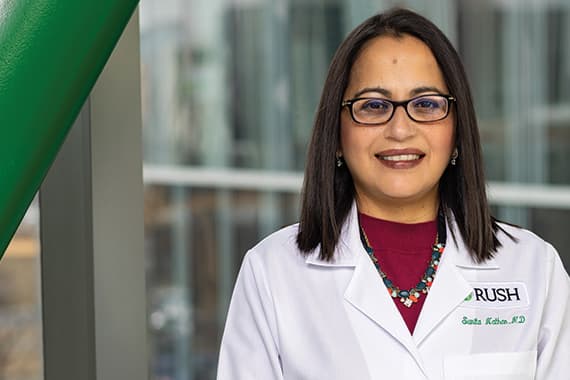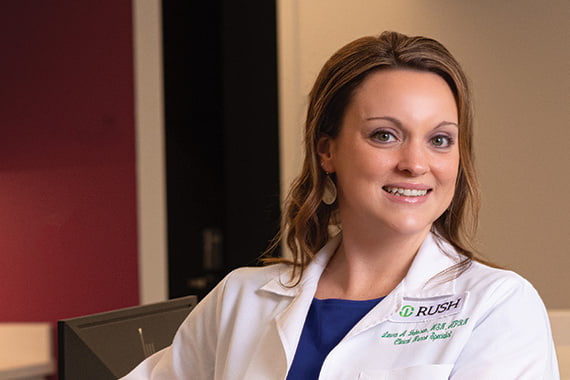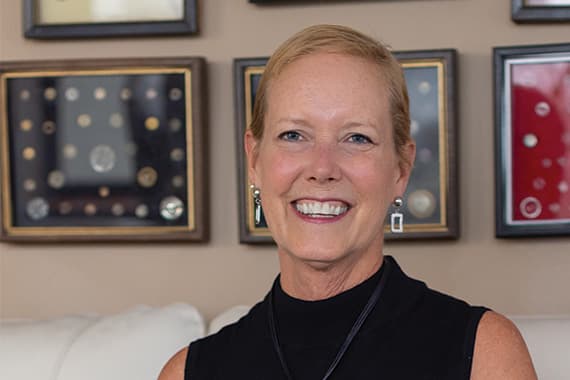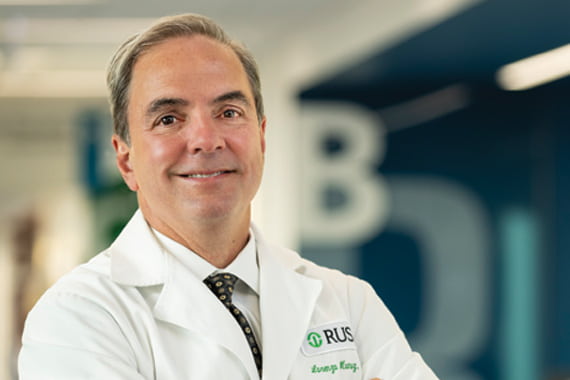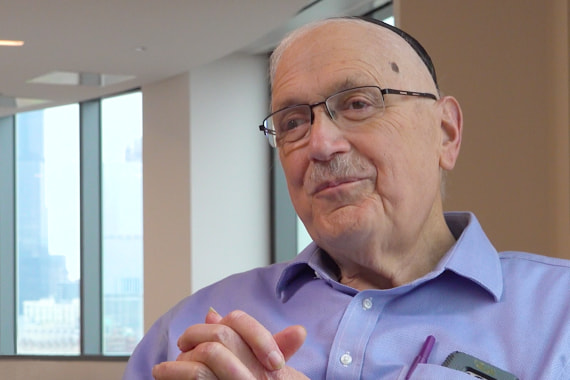When Jasmine Mertens was pregnant with her daughter in 2014, she knew something was off.
“I was always shaking, and I blacked out and fainted a lot,” says Jasmine, who is now 25 years old. “This was something I’ve never experienced before.”

Jasmine was diagnosed with epilepsy at a Chicago hospital and was treated with nonepileptic medications.
But last November, she started having similar symptoms and was later admitted to RUSH University Medical Center.
RUSH stepped in to help
Jasmine met with Antoaneta Balabanov, MD, an epileptologist at the RUSH Epilepsy Center, who found that Jasmine does not have epilepsy and helped find the true cause of her symptoms.
Balabanov diagnosed Jasmine with nonepileptic spells, which she says, “for many patients are equally as serious.”
“I was looking for answers for my health issues, and Dr. Balabanov gave me the answers I needed.”
“Nonepileptic spells can look very similar to seizures related to epilepsy and can be just as concerning when it comes to quality of life,” she says. “The difference is that on an EEG, we don’t see any abnormal brain activity, which tells us the spells are not related to epilepsy.”
‘Everyone should get a second opinion’
Jasmine had a follow-up appointment with Balabanov, when she was one of the first patients seen in the new Joan and Paul Rubschlager Building.
“The new building is very convenient,” Jasmine says. “All of my appointments are in the same building, so it’s easy to know where everything is at.”
At her appointment, Balabanov referred Jasmine to the NEST clinic in the RUSH Epilepsy Center — one of the only clinics in the U.S. that provides care for patients with nonepileptic spells — where she will receive counseling and treatment for her condition.
“I was looking for answers for my health issues, and Dr. Balabanov gave me the answers I needed,” Jasmine says. “Now I can focus on those issues, which are related to my mental health.”
Balabanov adds that receiving the wrong diagnosis can be a challenge, but that Jasmine was persistent about getting the care she needed. Balabanov encourages everyone — regardless of the diagnosis — to get a second opinion.
“I’m happy with this new starting point for me,” Jasmine says. “And I’m so thankful for RUSH.”
To schedule an appointment for a second opinion on epilepsy care, visit us at rush.edu/services/epilepsy-care.
RUSH IMPACT
The new Joan and Paul Rubschlager Building is a destination for state-of-the-art outpatient care in cancer, neurosciences, digestive diseases and more. These stories of impact highlight what RUSH means to its patients, providers, employees and community — and illustrate how the Rubschlager Building supports RUSH in providing excellent patient care.


